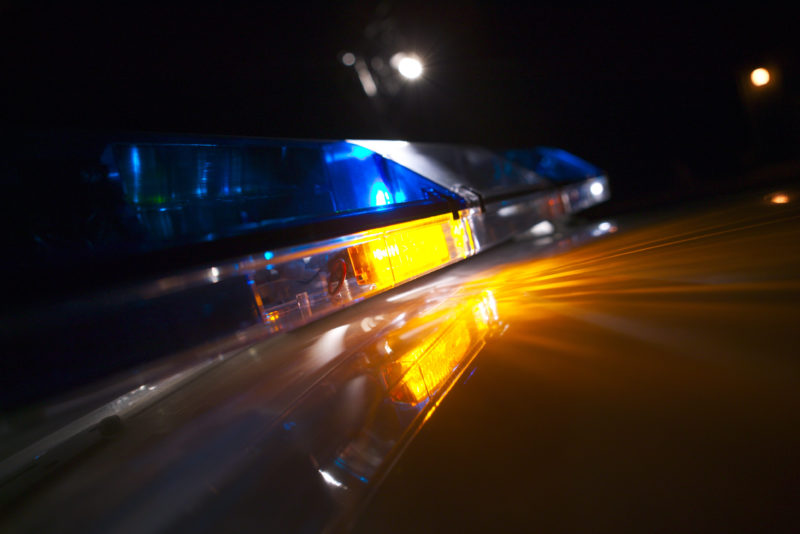One of the techniques which may be used by a DWI defense attorney in a DWI trial is cross-examination. A DWI defense attorney may cross-examine one of the prosecution’s witnesses, such as the arresting officer in the case, in order to test the truthfulness of the witness and the accuracy of their testimony. In cross-examining a witness, such as the arresting officer, the DWI defense attorney will attempt to discredit, or to weaken in one or more ways, the testimony of the witness. It is important to note that cross-examination of a witness by a DWI defense attorney is only allowed to cover matters relevant to the issues in the case.
A typical cross-examination of the arresting officer in a DWI case may involve a discussion of the officer’s: a) education, training and experience; b) the facts and circumstances that led to the arrest of the defendant; c) the opinion (and the basis thereof) of the arresting officer as to the defendant’s lack of sobriety or state of intoxication, and d) chemical tests and their results.
The Police Report
In many cases, the arresting officer’s report is the starting place for cross-examination. The officer may identify several things that led to their conclusion that the defendant was impaired, and may fail to mention other “clues of impairment” or may even admit that the defendant did not exhibit those clues. One of the first things a DWI defense attorney does when cross-examining the arresting officer is to establish that the officer was properly trained to gather all the evidence that showed the defendant was driving while intoxicated that the officer observed during the investigation, and that the officer was properly trained to write a complete and accurate police report. A DWI defense attorney will try to establish whether the officer wrote the police report immediately after the incident when the arrest and investigation was fresh in his or her memory. This technique of cross-examination is sometimes referred to as “marrying” the officer to their report, and in so doing, committing them to the things they have written in their report.
Establishing the defendant’s intoxication
The arresting officer will often testify for the prosecution in a DWI case and give information about National Highway Traffic Safety Administration (NHTSA) signs of impairment that they observed in the defendant’s driving, stopping of their vehicle, exiting of their vehicle, observations about their appearance, odor of alcohol, admissions, balance, and performance on standardized field sobriety tests to establish that the officer had a lawful basis for the stop, probable cause for the arrest, and to establish that the driver was under the influence of drugs and/or alcohol to a degree that they could not drive safely. Officers called by the prosecution will often describe, for example, various NHTSA factors that suggest that a driver is impaired even before the administration of field sobriety tests, so even if the driver refuses testing, the NHTSA rules are extremely important to the prosecution’s case.
In cross-examining the arresting officer about observed signs of intoxication or impairment, the DWI defense attorney may attempt to show that the officer made a rush to judgment in concluding that the defendant was intoxicated or that the officer had made a subjective judgment that the defendant was intoxicated before giving the defendant any field sobriety tests and thus, the officer’s opinion about the defendant’s intoxication was predetermined and biased. The basis for a DWI defense attorney’s cross-examination of the arresting officer about observed signs of intoxication is that police officers can make mistakes in determining whether a defendant is or is not intoxicated.
Field Sobriety Tests
When cross-examining the arresting officer about field sobriety tests, the main goal of the DWI defense attorney is to question the tactics used in administering the field sobriety tests, the credibility of the tests, and how the defendant actually performed on the tests.
Along with challenging the validity of the tests, a DWI defense attorney may challenge the officer’s qualifications to administer the tests. Obviously, this is more important when the case involves a rookie officer or someone who has not been on the police force for long. Even with more experienced officers, a DWI defense attorney may want to have the officer testify as to the amount of training they have had regarding the field sobriety tests. Most officers are certified to administer the tests over a weekend course, and require little continuing education to remain certified. By asking simple questions of the arresting officer, such as about the type of clues to look for on the walk-and-turn test, a DWI defense attorney may point out an officer’s lack of knowledge about the NHTSA manual regarding the administration of field sobriety tests.
The attorneys at the law firm of Nave DWI Defense Attorneys are experienced in handling DWI cases. If you need a lawyer who can help you obtain the best possible outcome in your DWI case, call the law firm of Nave DWI Defense Attorneys.
The exclusive purpose of this article is educational and it is not intended as either legal advice or a general solution to any specific legal problem. Corporate offices for Nave DWI Defense Attorneys are located at 432 N. Franklin Street, Suite 80, Syracuse, NY 13204; Telephone No.: 1-866-792-7800. Prior results do not guarantee a similar outcome. Attorney Advertising.





